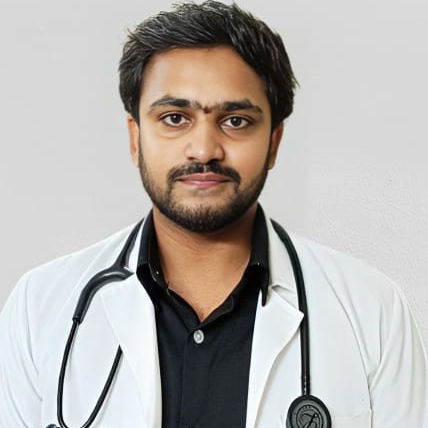Ways To Find Right Pain Management Specialist
Learn how to choose the right pain management specialist, understand treatment options, and get expert guidance for effective pain relief.


Introduction
Living with persistent pain can be isolating and overwhelming. When over-the-counter remedies and advice from your primary doctor are no longer enough, it may be time to seek out a pain management specialist. But finding the right specialist, one who listens, understands your unique situation, and offers a comprehensive treatment plan, is crucial for your journey to recovery. This isn't a decision to be rushed. The right pain management professional can be the difference between merely coping and truly reclaiming your life.
This guide is designed to empower you with a clear, step-by-step process. We will move beyond a simple directory search and explore how to vet a specialist's credentials, understand their treatment philosophy, and ensure they are the best fit for your specific needs. From securing the initial referral to knowing what questions to ask during your first consultation, we'll cover everything you need to make a confident and informed choice for your health.
Understanding the Role of a Pain Management Specialist
A pain management specialist is a medical doctor with advanced training in diagnosing and treating complex pain conditions. Their goal is not always to eliminate pain entirely, which may not be possible for some chronic conditions, but to reduce its intensity, improve your physical function, and enhance your overall quality of life. Think of them as detectives and architects: they work to pinpoint the source of your pain and then design a customised blueprint for management.
More Than Just Prescribing Medication
While medication can be a component of treatment, the field has evolved significantly. Modern pain management emphasises a multi-modal or interdisciplinary approach. This means your specialist may coordinate a combination of therapies, which can include interventional procedures (like injections or nerve blocks), physical therapy, cognitive-behavioural therapy, and alternative treatments like acupuncture. The focus is on treating the whole person, not just the symptom.
Types of Pain They Treat: Acute vs. Chronic
Specialists are equipped to handle both acute and chronic pain. Acute pain is often sudden and sharp, resulting from a specific injury, surgery, or illness. It typically subsides as the body heals. Chronic pain, however, persists for weeks, months, or even years. Conditions like lower back pain, arthritis, neuropathy, fibromyalgia, and migraines fall under this category. If your pain has lasted beyond the expected healing time (usually three to six months), a pain management specialist is the appropriate next step. If your chronic condition is impacting your daily life, consult a doctor online with Apollo24|7 for an initial assessment and guidance on specialist care.
Consult a Pain Management Specialist for the best advice
Step 1: Start with a Referral from Your Primary Care Physician
Your journey should ideally begin with your primary care physician (PCP). They are your medical home base and have a comprehensive view of your health history.
Why Your PCP is Your Best Starting Point
Your PCP can provide a trusted referral based on their professional network. They know which local specialists have strong reputations for treating specific conditions. Furthermore, they can ensure that your records, including any prior imaging (X-rays, MRIs) and lab tests, are forwarded to the new specialist, creating a seamless transition of care.
Preparing for Your PCP Visit: What Information to Bring
To help your PCP make the best referral, come prepared. Keep a "pain journal" for a week before your appointment. Note the pain's location, intensity (on a scale of 1-10), what makes it better or worse, and how it affects your sleep, mood, and daily activities. A detailed history helps your doctor understand the pattern and severity of your pain, enabling them to recommend a specialist whose expertise aligns perfectly with your needs.
Step 2: Verify Credentials and Specialisation
Once you have a name or a list of potential doctors, it's time to do your homework. Credentials are a non-negotiable first filter.
Board Certification: The Gold Standard
Board certification is the highest level of accreditation in a medical specialty. It signifies that the doctor has undergone rigorous training and passed comprehensive exams. Most pain management specialists are certified in a primary specialty like Anaesthesiology, Physical Medicine and Rehabilitation (Physiatry), or Neurology, with additional sub-specialty certification in Pain Medicine. You can verify a doctor's board status through the American Board of Medical Specialties (ABMS) website or its equivalent in your country.
Fellowship Training in Pain Medicine: What It Means for You
Look for a doctor who has completed a fellowship in pain management. This means they have dedicated an extra year or more to intensive, focused training in the latest pain treatment techniques beyond their core residency. A fellowship-trained specialist is more likely to be skilled in complex interventional procedures and up-to-date on the most advanced management strategies.
Step 3: Research Their Experience and Treatment Philosophy
Credentials tell you a doctor can practice, but experience tells you what they are best at. A specialist who primarily treats cancer-related pain may not be the ideal fit for your sports injury.
Inquiring About Success Rates with Your Specific Condition
When you contact a clinic, don't hesitate to ask, "What percentage of your practice is dedicated to treating [your condition, e.g., sciatica or fibromyalgia]?" A receptionist or nurse coordinator should be able to provide a general answer. This ensures the doctor has substantial experience with cases similar to yours.
The Multi-Disciplinary Approach: A Sign of Quality Care
Investigate the clinic itself. The best pain management centers often have a team of professionals working together. This might include physical therapists, psychologists, and nurse practitioners. This integrated model is a strong indicator of a comprehensive treatment philosophy focused on long-term wellness rather than quick fixes. It answers the key question of what to look for in a pain clinic beyond the lead physician.
Step 4: Evaluate Practical Factors: Location, Logistics, and Insurance
Even the most brilliant specialist won't be helpful if seeing them is a consistent logistical or financial struggle.
The Importance of Location for Ongoing Treatment
Pain management is often a process, not a one-time event. You may need to visit the clinic weekly or monthly, especially in the beginning. Consider the travel time and whether it's sustainable for you. A conveniently located clinic reduces stress and makes it easier to adhere to your treatment plan.
Navigating Insurance and Understanding Costs
This is a critical step. Contact your insurance provider to confirm that the specialist is in-network. Also, call the specialist's office to verify they accept your specific plan. Ask about costs for common procedures and what payment plans are available. Understanding the financial aspect upfront prevents unexpected bills and allows you to focus on your health.
Step 5: The Crucial Step: Schedule a Consultation
The consultation is your opportunity to interview the doctor. You are assessing whether this is a person you can trust and communicate with effectively.
Preparing Your Questions for the First Appointment
Go beyond just describing your symptoms. Come with a list of written questions designed to understand the doctor's approach and gauge your comfort level with them.
Sample Questions to Assess Communication and Approach
- "What is your typical approach to treating someone with my condition?"
- "What are the goals of treatment? How do you measure success?"
- "What are the non-opioid and non-invasive options we can explore first?"
- "How do you involve me in creating my treatment plan?"
- "How do you coordinate care with my other doctors?"
Red Flags and Green Flags During the Consultation
Red Flags: The doctor seems rushed, dismisses your questions, does not make eye contact, or immediately suggests a highly invasive procedure without discussing conservative options first. A heavy emphasis on opioid medications as a first-line treatment is also a significant concern.
Green Flags: The doctor listens attentively, explains complex concepts in understandable terms, involves you in decision-making, and presents a balanced treatment plan that aligns with your lifestyle and goals. You should leave the consultation feeling heard and hopeful.
Conclusion
Finding the right pain management specialist is a proactive and personal process. It requires moving beyond a simple online search and engaging in careful research and reflection. By following these steps starting with a referral, vetting credentials, understanding the specialist's approach, and ultimately trusting the connection you feel during a consultation, you empower yourself to find a partner in your healthcare. This partnership is the foundation for developing an effective, personalised pain management strategy.
Remember, effective pain management is a journey toward improved function and a better quality of life. It may take time and adjustments, but with the right specialist by your side, you can navigate this path with confidence.
Consult a Pain Management Specialist for the best advice
Consult a Pain Management Specialist for the best advice

Dr. Shruti I
Obstetrician and Gynaecologist
7 Years • MBBS, MS (OBSTETRICS & GYNAECOLOGY)
Bangalore
Apollo Clinic Bellandur, Bangalore

Dr. Dayanashre N
General Physician
3 Years • MBBS
Bengaluru
PRESTIGE SHANTHINIKETAN - SOCIETY CLINIC, Bengaluru

Dr. Anupriya C
General Physician/ Internal Medicine Specialist
5 Years • MBBS, MD, General Medicine
Bengaluru
Apollo Clinic, JP nagar, Bengaluru

Dr Chilukuri Venkata Reddy
General Physician
4 Years • MBBS
Bengaluru
PRESTIGE SHANTHINIKETAN - SOCIETY CLINIC, Bengaluru
Dr Sumanth R
General Physician
2 Years • MBBS
Bengaluru
PRESTIGE SHANTHINIKETAN - SOCIETY CLINIC, Bengaluru
Consult a Pain Management Specialist for the best advice

Dr. Shruti I
Obstetrician and Gynaecologist
7 Years • MBBS, MS (OBSTETRICS & GYNAECOLOGY)
Bangalore
Apollo Clinic Bellandur, Bangalore

Dr. Dayanashre N
General Physician
3 Years • MBBS
Bengaluru
PRESTIGE SHANTHINIKETAN - SOCIETY CLINIC, Bengaluru

Dr. Anupriya C
General Physician/ Internal Medicine Specialist
5 Years • MBBS, MD, General Medicine
Bengaluru
Apollo Clinic, JP nagar, Bengaluru

Dr Chilukuri Venkata Reddy
General Physician
4 Years • MBBS
Bengaluru
PRESTIGE SHANTHINIKETAN - SOCIETY CLINIC, Bengaluru
Dr Sumanth R
General Physician
2 Years • MBBS
Bengaluru
PRESTIGE SHANTHINIKETAN - SOCIETY CLINIC, Bengaluru
More articles from General Medical Consultation
Frequently Asked Questions
1. What is the difference between a pain management specialist and an orthopedist?
An orthopedist is a surgeon who focuses on diagnosing and treating problems of the bones, joints, and muscles, often with surgical solutions. A pain management specialist uses non-surgical, interventional, and medication-based approaches to treat pain from various causes, including but not limited to orthopedic issues. They often work together.
2. What are some non-surgical pain treatment options I should ask about?
These can include physical therapy, corticosteroid or nerve block injections, radiofrequency ablation (using heat to disable nerve fibres), spinal cord stimulation, medication management, and complementary therapies like acupuncture or biofeedback.
3. How long does it usually take to see results from a pain management plan?
This varies greatly depending on the individual and the treatment. Some interventions, like injections, may provide relief within days. A comprehensive plan involving physical therapy and lifestyle changes may take several weeks or months to show significant, sustained improvement.
4. Should I stop seeing my other doctors once I start with a pain specialist?
No. Your pain management specialist should be part of your care team. They will coordinate with your primary care physician and any other specialists (like a neurologist or rheumatologist) to ensure all aspects of your health are managed cohesively.
5. What if the first treatment plan doesn't work?
A good specialist will not give up. If the initial approach isn't effective, they should re-evaluate your diagnosis, adjust the plan, and explore other options. Open communication about what is and isn't working is key.
.webp)



